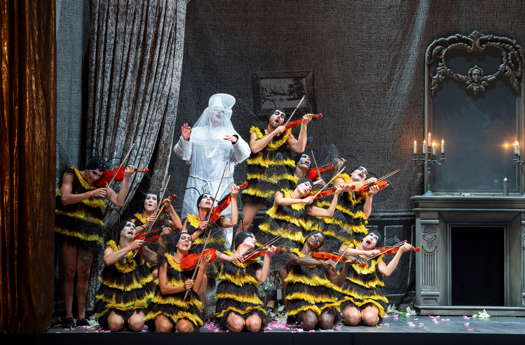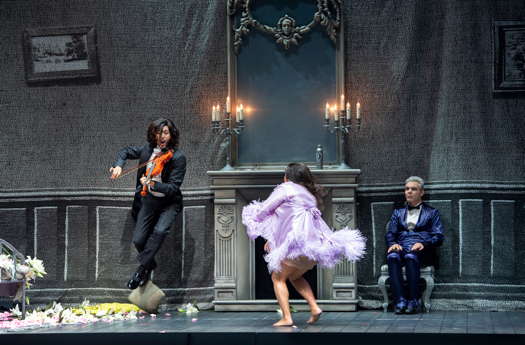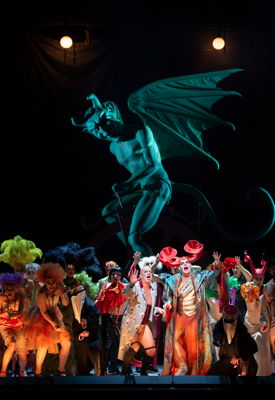 DISCUSSION: John Dante Prevedini leads a discussion about Composers, individuals or collective?, including contributions from David Arditti, Halida Dinova, Robert McCarney and Jane Stanley.
DISCUSSION: John Dante Prevedini leads a discussion about Composers, individuals or collective?, including contributions from David Arditti, Halida Dinova, Robert McCarney and Jane Stanley.
 DISCUSSION: What is a work? John Dante Prevedini leads a discussion about The performing artist as co-creator, including contributions from Halida Dinova, Yekaterina Lebedeva, Béla Hartmann, David Arditti and Stephen Francis Vasta.
DISCUSSION: What is a work? John Dante Prevedini leads a discussion about The performing artist as co-creator, including contributions from Halida Dinova, Yekaterina Lebedeva, Béla Hartmann, David Arditti and Stephen Francis Vasta.
- Nicolas Reveles
- György Cziffra
- Tommy Beecham
- Amy Beach
- Mary Shelley
- Judith Webster
- Emiliano Gonzalez Toro
- Morgan Pearse
Orpheus in Limbo
GIUSEPPE PENNISI reports on
Offenbach's 'Orpheus in the Underworld'
at the Salzburg Festival
Is there room for operetta in a multidisciplinary festival of global importance like the Salzburg Summer Festival? I do not know if, during the years when von Karajan was in charge, the festival ever produced the operetta he most loved: Die lustige Witwe (the Merry Widow) by Franz Lehár. (There is an excellent recording with Karajan conducting.) In Bad Ischl, not far from Salzburg, there is a festival dedicated to Lehár. There was a precedent: in 2001, the Salzburg Festival produced Johann Strauss' Die Fledermaus in a Hans Neuenfels staging that caused a real scandal and ended Mortier's tenure. The question is not idle because this year, for the two hundredth anniversary of Jacques Offenbach's birth, the festival has included his most famous operetta Orphée aux enfers - a tribute co-produced with Deutsche Oper am Rhein and the Komische Oper Berlin.
Asking the question does not mean suggesting that operetta is an 'inferior' genre to opera, symphonic, chamber, drama or experimental music. Operetta is an important part of musical theatre, but it is very difficult to stage. First, it requires singers (with voices set for opera) who know how to play, dialogue, and dance. In addition, it needs a highly respected orchestra able how to handle details and shading. Finally, it is essential to decide which language to use to sing and play: the original, or that of the country in which the performance takes place.
In Salzburg in 2016, Cecilia Bartoli led, with great success, Leonard Bernstein's West Side Story, but not in the version usually seen in the theaters. It was the version set for operatic voices - José Carreras, Kiri Te Kanawa, Tatiana Troyanos, Marilyn Horne and Kurt Ollman - and conceived by Bernstein for a studio recording. It was, of course, sung and played in English.
The language problem is not subordinate to the rest of the staging. During the last few years, I have heard at least two great productions of Die lustige Witwe (named, of course, La vedova allegra) in Italian rhythmic translation and with good singers/actors. I have also seen a version produced with the dialogues in Italian and the sung vocal parts in German. The dialogues were approximate and poorly understood by the audience, even though essential to the performance. The outcome was much better for the three operettas viewed and listened to at the Ravenna Festival in 2016: they had been entrusted to a company of Budapest and were sung and played in Hungarian with surtitles.
There is, then, another important point: operetta - and especially French operetta - has strong satirical and political overtones which must be contextualized in the period in which it was conceived. This applies in particular to Offenbach's two masterpieces, La belle Hélène and Orphée aux enfers, stinging satires of the bourgeoisie of the Second Empire and Third Republic in France, as well as of celebrities of the time, such as Paganini. I remember an effective production at La Fenice in Venice in 1985; these issues were resolved with a good Italian translation and good singers/actors.
In Salzburg, the production I saw and heard on 22 August 2019 took a different road. The musical part was entrusted to the good Italian conductor Enrique Mazzola and the Vienna Philharmonic. The direction was by one of the great names of these years, Barrie Kosky, who has made Berlin's Komische Oper one of the most interesting theatres in Europe.

Marcel Beekman as Aristée / Pluton, with dancers, in the Salzburg Festival production of Offenbach's Orphée aux enfers. Photo © 2019 Monika Rittershaus
Since the cast was largely international, but mostly German-speaking, the choice was made to sing in French and play the dialogues in German. In addition, since not all the interpreters were familiar with German, starting with the protagonist, Kathryn Lewek, who is from the American Midwest, the decision was made that Max Hopp (as John Styx) would do all the talking, while others pretended to talk by moving their lips.

From left to right: Joel Prieto as Orphée, Kathryn Lewek as Eurydice and Max Hopp as John Styx in the Salzburg Festival production of Orphée aux enfers. Photo © 2019 Monika Rittershaus
In short, the vocal parts were incomprehensible and the spoken parts were an exhibition of Hopp's skill as an experienced and well-versed elocutionist.

A scene from the Salzburg Festival production of Orphée aux enfers. Photo © 2019 Monika Rittershaus
The satire against the rich bourgeoisie and its pleasures? Difficult to catch. The show was, instead, a burlesque. With the traditional Can Can danced largely by men disguised as women. Poor Orpheus! He does not go into the orgiastic hell imagined by Offenbach, but remains in limbo.
Copyright © 5 September 2019
Giuseppe Pennisi,
Rome, Italy



